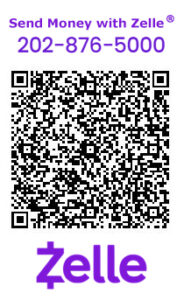The literal meaning of the Arabic word zakât is “increase,” “growth,” “betterment,” “righteousness,” “praise,” “blessings,” “purification,” and “commendation”. In Islam, zakat refers to a person’s duty to donate a set percentage of their annual wealth to charities. It is compulsory for all eligible Muslims and is a form of prayer. It is the greatest afterlife investment.
In Islam, loans and debts are important financial transactions that must be conducted with honesty, fairness, and responsibility. If a person has taken out a loan, they are still liable to pay Zakat on their wealth. It includes any assets or money they have borrowed. In today’s world, there are many kinds of loans and debts. It is a confusing and debatable question, “How do you pay zakat if you have loans?”
Zakat holds a very significant role in Islam. It is important to have a clear conception of it in every circumstance. In this blog, we will explore the concept of loans and debts in terms of zakat.
Concept of Loans in Islam
In Islamic finance, loans are based on the principles of partnership, risk sharing, and social responsibility. The concept of loans in Islam revolves around the prohibition of riba. It means interest or usury. Riba is unethical and exploitative, and Islam prohibits it.
Instead of charging interest, Islamic finance offers various financial instruments based on profit-sharing. Such as – mudarabah and musharakah. In mudarabah, one party provides the capital, while the other party provides the expertise and management. The profits are then shared according to a pre-agreed ratio, while losses are borne by the provider of the capital.
In musharakah, both parties contribute capital and share profits and losses according to a pre-agreed ratio. This type of partnership is often used for large-scale projects where both parties share the risk and reward.
Overall, the concept of loans in Islam emphasizes ethical and socially responsible financing. Mutual benefit and risk-sharing are very important parts of it.
Understanding the Ruling on Zakat on Loans
When it comes to loans, the ruling on Zakat varies depending on the type of loan. There are two main types of loans:
- Qard Al-Hasan: This is a loan given without any expectation of repayment or interest. In this case, Zakat is not applicable because the money is a gift rather than an investment.
- Loans with Interest: This type of loan involves the payment of interest or usury. Islam prohibits this kind of thing. However, if a Muslim has taken out a loan with interest, the amount of the loan is a debt that must be repaid. Therefore, the loan amount is not a part of the individual’s wealth for Zakat calculation purposes.
So, if you have taken out a loan and owe money to someone else, then the amount you owe is a debt. You can subtract it from your total assets when calculating Zakat. This means that you do not have to pay Zakat for the amount that you owe.
The reason for this is that Zakat’s calculations depend on a person’s net wealth, which is their total assets minus their liabilities or debts. So, if you have a loan, the amount that you owe is a liability or debt, and it reduces your net wealth.
However, any interest earned on investments or savings is part of an individual’s wealth and is subject to Zakat. The Zakat payment on such interest is calculated at 2.5% of the interest earned.
Exceptional Scenarios for Zakat on Loans
There are exceptional cases where zakat on loans may differ, such as:
- In case of inability to repay a loan, the lender may write off the loan as a charitable act. And pay zakat on the total amount of the loan.
- If the lender is uncertain about the borrower’s ability to repay the loan, and it is likely that the loan may not be repaid, the lender may pay zakat on the loan amount in each year it remains outstanding.
- If the lender receives any interest on the loan, then the interest received should be separated from the original loan amount. The interest received is a part of the lender’s income and is subject to zakat. The original loan amount is subject to zakat if it remains outstanding for a full lunar year.
- If the loan is given for business purposes, the lender may exclude the outstanding loan amount from the zakat calculation if the loan is still actively used for business purposes.
It’s important to note that the exceptional cases of zakat on loans can vary depending on the individual circumstances and interpretations of Islamic scholars. Therefore, it’s recommended to consult with a qualified Islamic scholar or expert in zakat before making any zakat calculations or decisions
Calculation of Zakat on Loans
In the modern world, we have different kinds of loans for different kinds of necessities. Taking loans for education, a home or a car is a normal occurrence. Many have confusion regarding these issues of how to pay zakat on debts or loans. Here are some of the discussions of scholars regarding these loans and debts –
Student Loan
In case a student takes a loan for education. He/She has to pay it back after they graduate. And start earning a stable income, it is not considered as part of zakat student loans. However, if the loan is interest-bearing, it is haram and strictly prohibited. So, it is not counted as student loans zakat calculation.
Car Loan
A car loan is a debt. You can deduct it from the assets subject to the car loan zakat calculation if it is outstanding on the Zakat due date. The remaining amount after deducting the loan is the amount on which Zakat is calculated.
Home Loan
Like a car loan, a home loan is also a debt. You can deduct it from the assets subject to home loan zakat calculation. The remaining amount after deducting the home loan from the total assets is the amount on which Zakat is calculated. Zakat mortgage debt is the same as this.
Credit Card Debt
Credit card debt is a debt and can be deducted from the assets subject to zakat credit card debt calculation if it is outstanding on the Zakat due date. The remaining amount after deducting the credit card debt from the total assets is the amount on which Zakat is calculated.
Interest-bearing loans and debts are harams and strictly prohibited in Islam. So, before calculating zakat, get rid of these kinds of loans as soon as possible.
Advice on Loans and Debts in Islam
In Islam, borrowing and lending money is permissible but with certain conditions and guidelines. In Islam, taking on a loan or obligation that accrues interest is forbidden. So, these loans should be paid off as quickly as feasible before calculating zakat.
Here are some ways to recover or solve loans and debts according to Islam and pay zakat without worry:
- Fulfill the agreement: The borrower must fulfill the agreed-upon terms and conditions of the loan. It includes repayment of the principal and interest (if applicable) on time.
- Seek forgiveness: If the borrower is unable to repay the loan on time due to unforeseen circumstances, he/she should seek forgiveness from the lender and ask for an extension or a new repayment plan.
- Mediation: If the borrower and lender are unable to come to an agreement, they can seek mediation from an unbiased third party such as a religious scholar or a respected member of the community.
- Sell assets: If the borrower is unable to repay the loan, he/she can sell assets to repay the debt. However, the sale should be at a fair price and not less than the market value.
- Charity: If the borrower is unable to repay the loan even after selling the assets, he/she can seek help from relatives, friends, or well-wishers. If this is not possible, the borrower can give to charity as a means of repayment.
Borrowing and lending should be done with caution and only when necessary. Muslims are encouraged to avoid unnecessary debt and to live within their means.
No, zakat cannot be used to pay off personal debts, including those of family members.
Yes, one may exclude student loan payments from wealth holdings when calculating Zakat.
If you have monthly loan installments, you cannot give Zakat on the loan amount until it is fully paid off and you have the remaining amount of wealth above the nisab threshold.
In conclusion, do you pay Zakat if you have loans, it depends on several factors. If the loan is for personal or household expenses and you don’t have enough assets to cover the outstanding debt, then you are not obliged to pay Zakat. But if you have enough assets to cover the debt, then you have to pay Zakat on those assets. However, if the loan is for business purposes or to acquire an asset, then the Zakat would be due on the net value of your assets after deducting the outstanding loan amount.
It is important to consult with a qualified Islamic scholar or financial advisor to determine your Zakat obligations based on your specific circumstances. Paying Zakat is an essential aspect of Islamic financial practice and should be taken seriously to fulfill one’s religious obligations and contribute to the welfare of the community.









